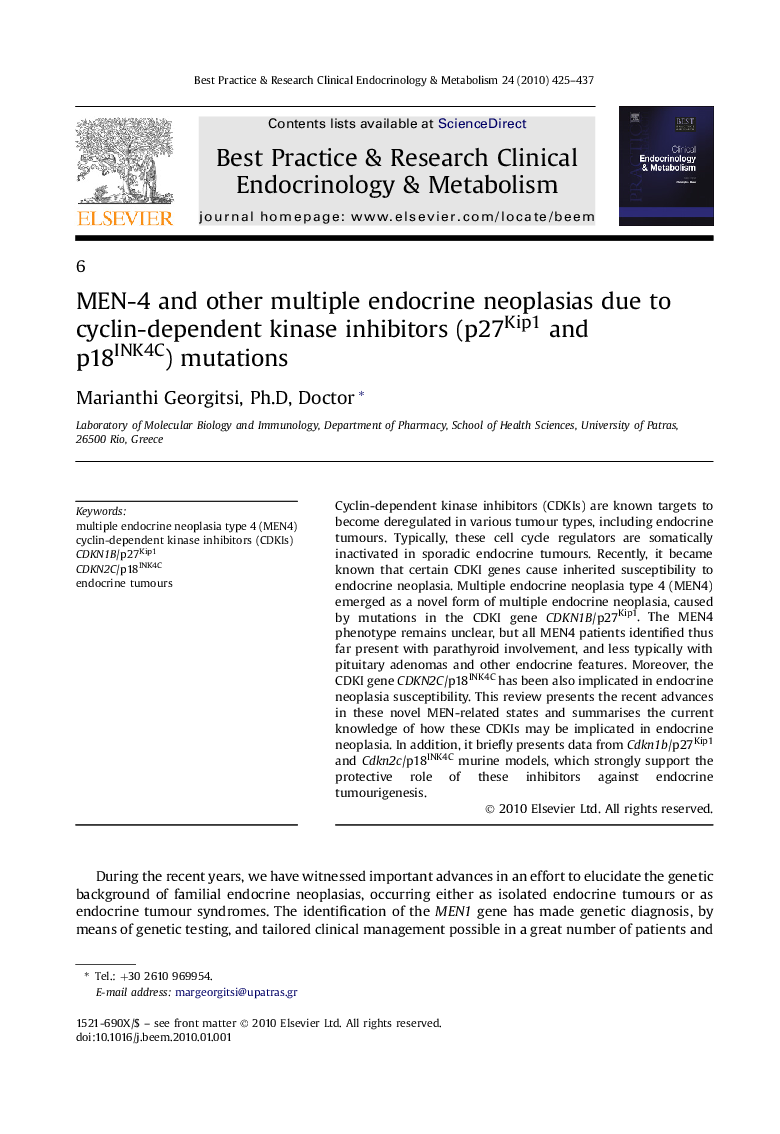| Article ID | Journal | Published Year | Pages | File Type |
|---|---|---|---|---|
| 2791886 | Best Practice & Research Clinical Endocrinology & Metabolism | 2010 | 13 Pages |
Cyclin-dependent kinase inhibitors (CDKIs) are known targets to become deregulated in various tumour types, including endocrine tumours. Typically, these cell cycle regulators are somatically inactivated in sporadic endocrine tumours. Recently, it became known that certain CDKI genes cause inherited susceptibility to endocrine neoplasia. Multiple endocrine neoplasia type 4 (MEN4) emerged as a novel form of multiple endocrine neoplasia, caused by mutations in the CDKI gene CDKN1B/p27Kip1. The MEN4 phenotype remains unclear, but all MEN4 patients identified thus far present with parathyroid involvement, and less typically with pituitary adenomas and other endocrine features. Moreover, the CDKI gene CDKN2C/p18INK4C has been also implicated in endocrine neoplasia susceptibility. This review presents the recent advances in these novel MEN-related states and summarises the current knowledge of how these CDKIs may be implicated in endocrine neoplasia. In addition, it briefly presents data from Cdkn1b/p27Kip1 and Cdkn2c/p18INK4C murine models, which strongly support the protective role of these inhibitors against endocrine tumourigenesis.
